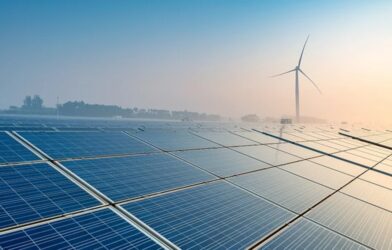The 17 elements that make up rare earth minerals, often known as rare earth metals, are crucial to contemporary technology. These metals are essential for everything from the production of wind turbines and electric vehicles (EVs) to cellphones and missile guiding systems like Akash and Astra. Because of its widespread distribution in concentrated resources, global supply systems are susceptible to disruption and geopolitical unrest. In reaction to US tariffs, China, which controls more than 90% of the world’s processing capacity and has the greatest reserves in the world (44 million tonnes), has limited shipments of seven rare earths. Globally, this action has caused a stir, especially in India’s EV manufacturing industry, which imports about 90% of its rare earth from China.
The international world is worried about China’s use of rare earths as weapons. At the last BRICS conference in Brazil, Prime Minister Narendra Modi stated that the international community must make sure that no nation utilises these resources as a “weapon” against others, without specifically mentioning Beijing.
India faces both a difficulty and a strategic discomfort due to China’s monopoly on rare earths, but it also has an opportunity. India has the potential to lessen its reliance on imports from China because of its estimated 6.9 million tonnes of rare earth reserves, which rank third in the world. Experts suggest that in order to fully use it, India needs to increase domestic extraction, expand its refining capabilities, and make investments in the whole value chain—from the mine to the still-underdeveloped magnet-making process.
They contend that although India has a lot of potential, in order to take advantage of the current crisis, technological and legal obstacles must be removed. Exporters must get licenses and submit end-use declarations in order to comply with China’s export limitations, which were announced on April 4. As a result, export prices have increased and shipments have halted. Demands and expenses have increased as a result of this supply shortage.
India’s Union Ministry of Mines has classified all seven of the rare earth elements that China has prohibited as essential minerals.
According to a report in The New York Times, China is acquiring and developing new deposits in war-torn northern Myanmar, which provides roughly 57% of Beijing’s imports of rare earths, while also collaborating with armed rebels to build processing facilities and export infrastructure to maintain control over the entire supply chain.
Carmakers in India, such as Maruti Suzuki and JSW MG Motor India, are experiencing delays in raw materials due to a decline in the supply of rare earths. Despite petitions, China’s Ministry of Commerce (MOFCOM) has not approved any of them, according to news agency PTI.
India’s electronics and EV industries, which imported 540 tonnes of magnets from China during the previous fiscal year, are worried that the limitations may cause manufacturing to stop. In terms of geopolitics, the action is perceived as China using its might as a weapon in the context of trade tensions between the US and China, with India caught in the crossfire.
In a statement seen as a criticism of China’s export restrictions on rare earth minerals, PM Modi called on member countries to maintain the security and dependability of vital mineral supply chains while cautioning against their use as geopolitical weapons during the 17th BRICS Summit.
The PM made this statement while travelling to several countries, including Brazil, which possesses the biggest known reserves of rare earth elements in thorium-rich Latin America. Although it is designated as a critical mineral in India, thorium is not a rare earth. China has unmatched clout because it controls 90% of processing and 70% of rare earth production.
Targeting essential components used in high-performance magnets, the April restrictions have stopped shipments to Indian companies while restarting exports to the US and Europe on a selective basis. China’s readiness to deploy rare earths as a trade weapon is demonstrated by its 2010 export embargo to Japan.
Global production is disrupted, particularly in EVs, where neodymium magnets are essential for motors. Additionally, it hinders India’s defence manufacturing. Indian automakers must endure a 40–45 day procurement process as a result of the decline in rare earth resources. According to a Frontline magazine investigation, it is endangering production schedules and New Delhi’s clean energy objectives.















Comments are closed